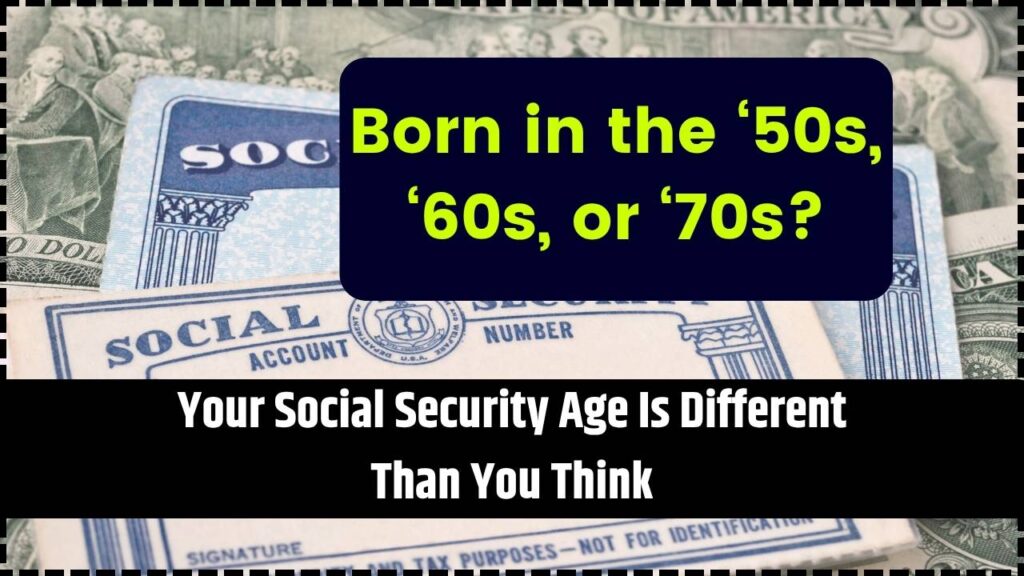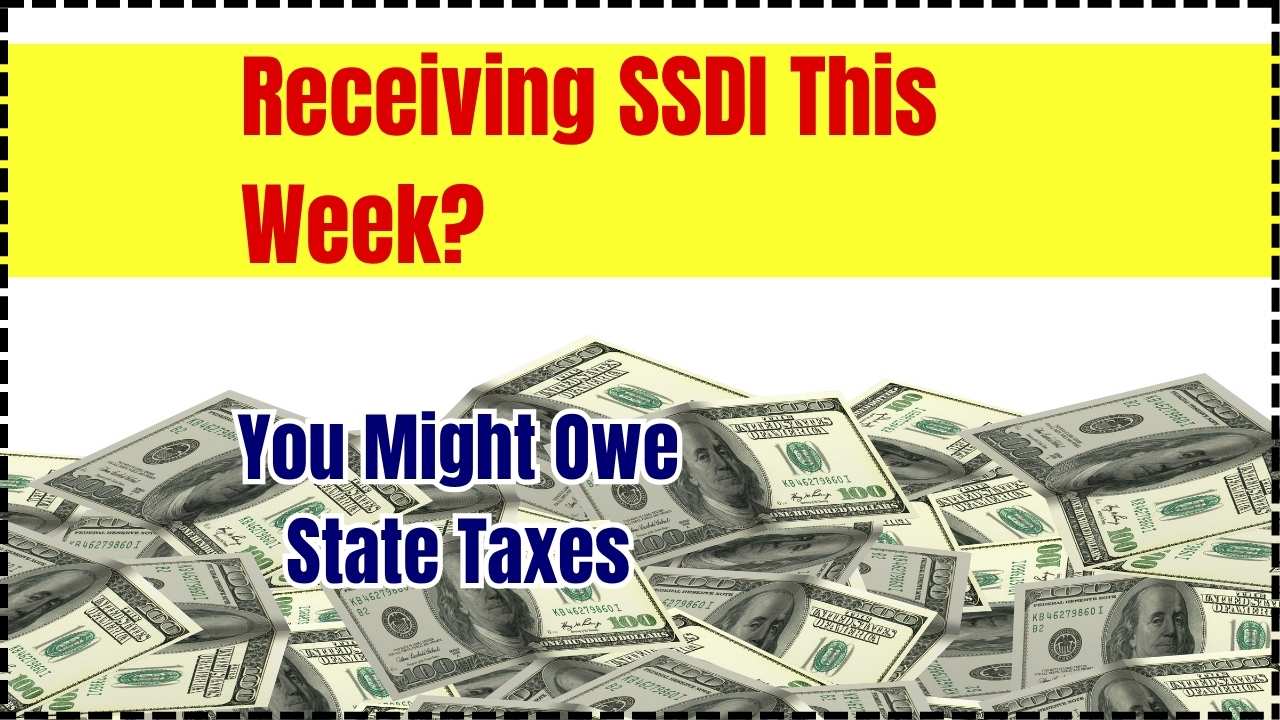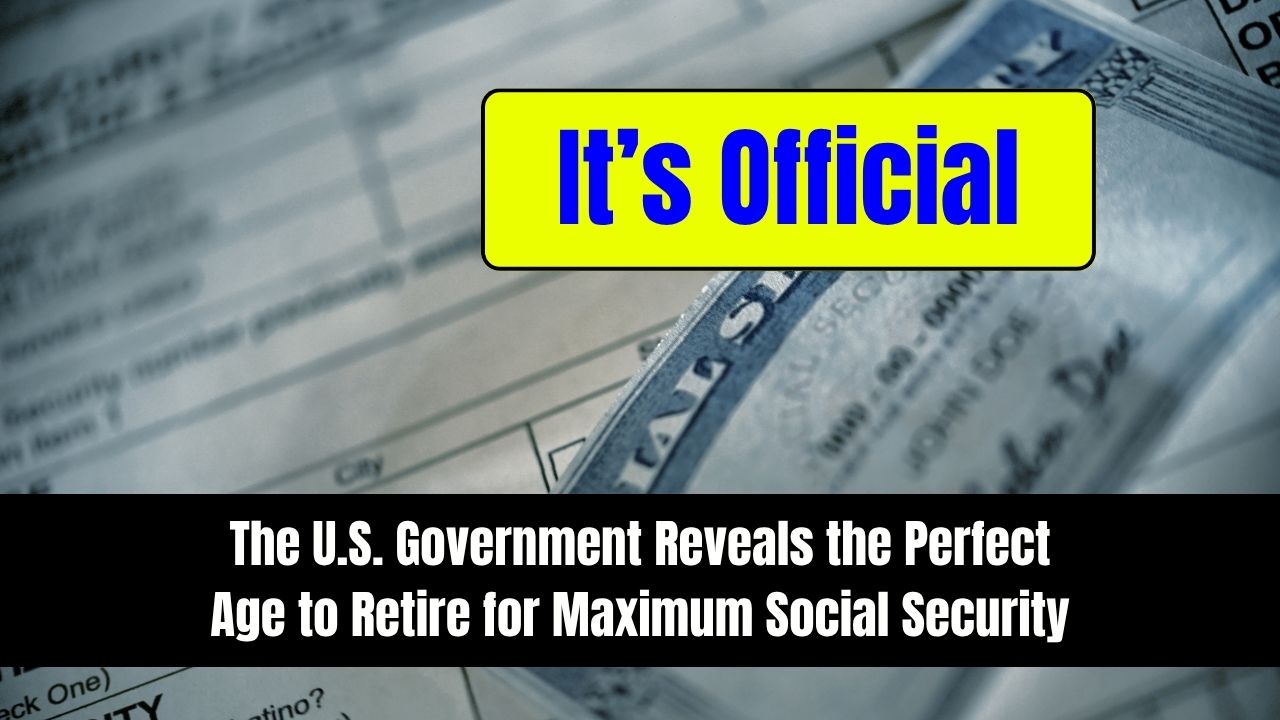Your Social Security Age Is Different: If you were born in the 1950s, 1960s, or 1970s, your Social Security Full Retirement Age (FRA) isn’t the old-school age of 65. Uncle Sam moved the goalpost. Thanks to the 1983 Social Security Amendments, folks in these birth decades now face a higher FRA—up to 67 years old. That means your timing for retirement can seriously impact your monthly income. Whether you’re counting down to retirement or just trying to make smart money moves, knowing your exact FRA matters—big time.
Your Social Security Age Is Different
If you were born in the 1950s, 1960s, or 1970s, your Full Retirement Age isn’t 65 anymore—and that can seriously affect your monthly Social Security check. Whether you’re planning for early retirement or holding out until 70 for a fat monthly payout, timing is everything. Use the tools, know the numbers, and make a plan that fits your life.

| Birth Year | Full Retirement Age (FRA) | Benefit at Age 62 | Benefit at Age 70 |
|---|---|---|---|
| 1955 | 66 yrs, 2 months | ~74.2% of full | +32% of full |
| 1956 | 66 yrs, 4 months | ~73.3% | +32% |
| 1957 | 66 yrs, 6 months | ~72.5% | +32% |
| 1958 | 66 yrs, 8 months | ~71.7% | +32% |
| 1959 | 66 yrs, 10 months | ~70.8% | +32% |
| 1960 & later | 67 yrs | 70% | +24% |
What Is Full Retirement Age (FRA) and Why Your Social Security Age Is Different Than You Think?
Full Retirement Age is when you can claim 100% of your Social Security benefits. But it’s no longer a “one-age-fits-all” deal. Here’s why:
- Born before 1954? Your FRA is 66.
- Born 1955–1959? FRA ranges from 66 and 2 months to 66 and 10 months.
- Born 1960 or later? FRA is 67.
Why should you care? Because claiming early = smaller checks for life. Wait longer = bigger bucks.
Early Retirement: The 62-Year Temptation
You can start receiving benefits at 62, but there’s a catch: You’ll receive less money each month—permanently.
Let’s say your monthly benefit at FRA (67) is $1,800:
- Claim at 62: You’ll only get about $1,260/month.
- That’s $540 less per month or over $6,000 a year.
Warning: If you keep working and earn too much before FRA, your benefits could be reduced even more due to the SSA’s earnings limit.
Delayed Retirement: The 70-Year Power Move
If you can wait until age 70, you’ll get up to 8% more per year beyond your FRA. That’s 24% more if your FRA is 67.
Example:
FRA Benefit = $2,000
Claim at 70 = ~$2,480/month
That’s $5,760 more a year — for life.
Real-Life Scenarios
Linda, a 66-year-old teacher: Retires early at 62 due to burnout. She receives 25% less but can stretch her pension.
Mike, a truck driver born in 1960: Delays until 70 to maximize his monthly benefit—he expects to live into his 90s, like his dad.
What About Inflation? Enter COLA…
Every year, SSA adjusts payments with Cost-of-Living Adjustments (COLAs). In 2023, retirees saw an 8.7% boost, the highest since 1981. But that doesn’t cancel out the penalty for early filing.
Don’t Forget Spousal & Survivor Benefits
If you’re married, divorced, or widowed:
- Spouses can get up to 50% of your benefit if claimed at FRA.
- Widows/widowers may receive 100% of the deceased’s benefit.
- Divorced spouses (married ≥10 years) also qualify in many cases.
Are Social Security Benefits Taxed?
Yep—sometimes. If you have other income like a pension or 401(k), up to 85% of your Social Security may be taxable.
- Individual: If total income > $25,000 = taxed.
- Married Filing Jointly: Income > $32,000 = taxed.
Think the Social Security Fairness Act Helped You? Some Seniors Are Still Getting Short-Changed
Trump Said No Cuts to Social Security; But These New Moves Say Otherwise
Social Security’s Big Change Isn’t Enough; Thousands Still Face 50% Benefit Reductions
Frequently Asked Questions (FAQs)
Q: Can I work and collect Social Security?
A: Yes, but if you’re under FRA and earn over $22,320 (2024), your benefits may be temporarily reduced.
Q: What happens if I change my mind after claiming early?
A: You can withdraw your application within 12 months—but you must repay all benefits received.
Q: How much can I expect to receive?
A: The average monthly Social Security benefit in 2024 is $1,907.





